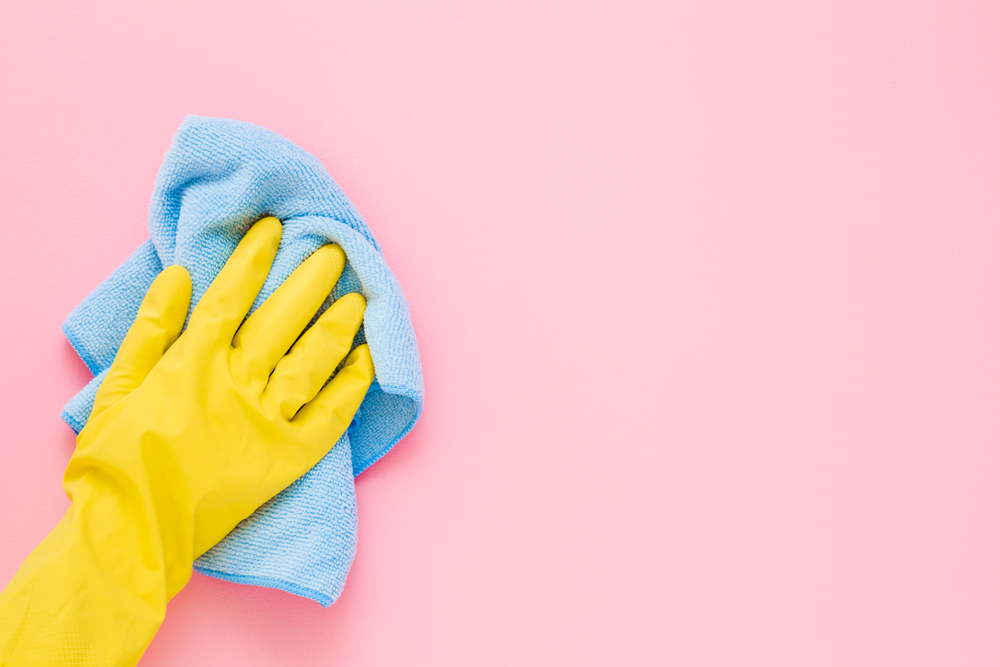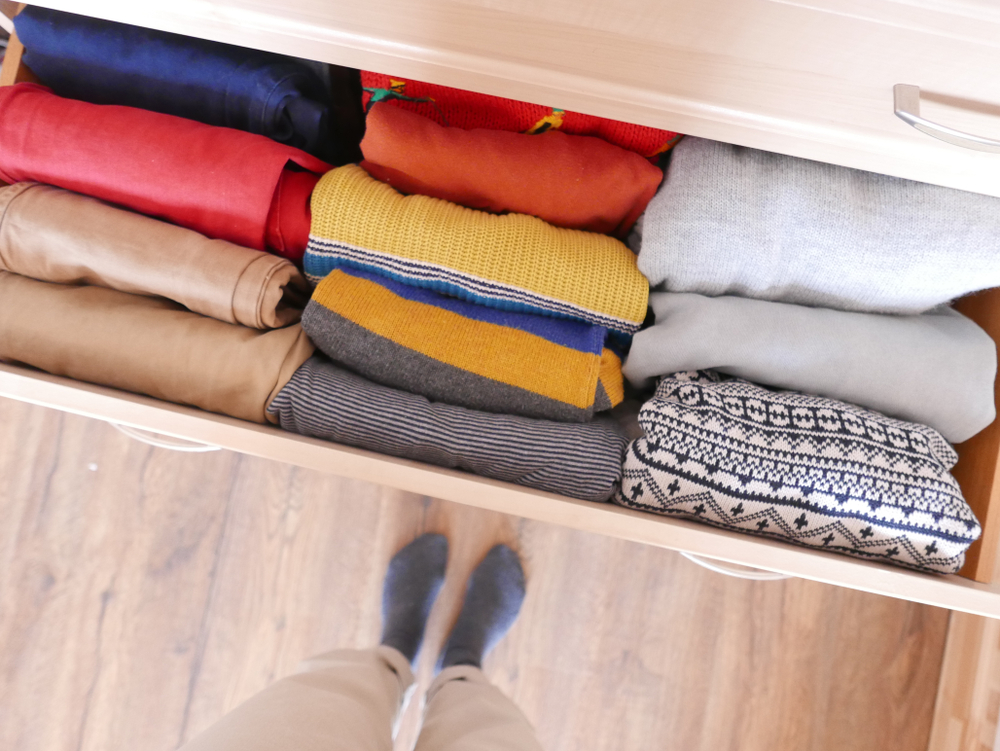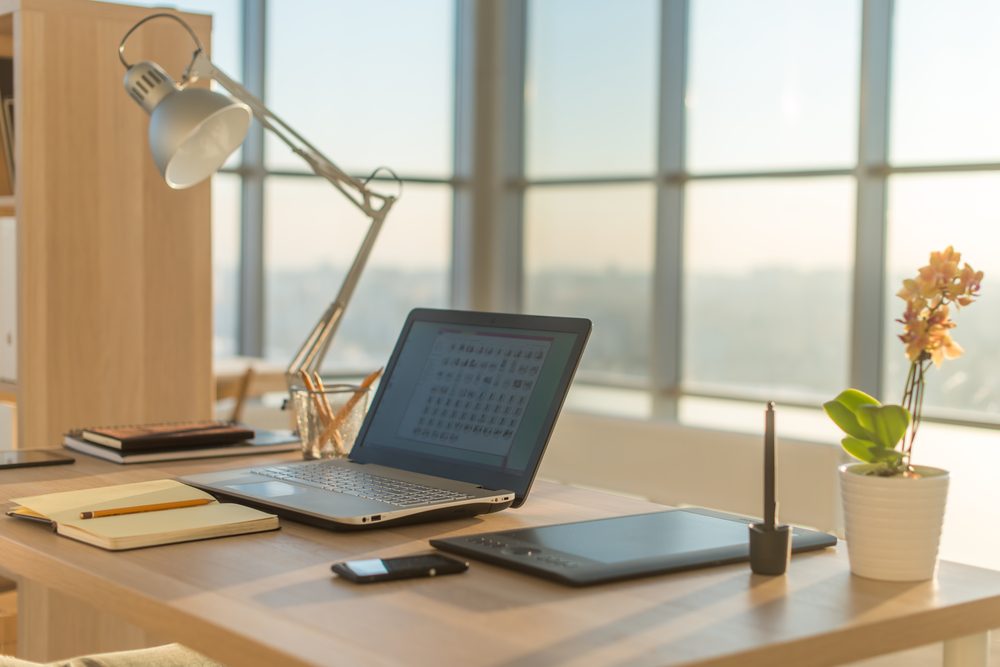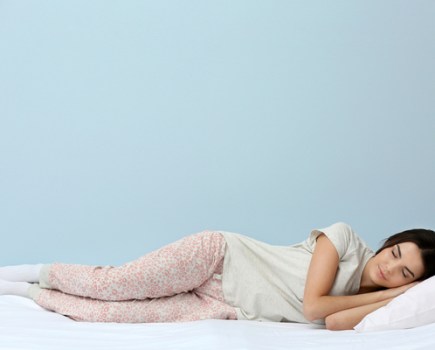Spring is here and with it, the urge to purge. Clearing out your clutter can be liberating, and the science is stacking up to prove it can have tangible mental health benefits, making you happier and more productive. It can even improve your diet. And this year more of us than ever have been bitten by the spring cleaning bug. Queen of de-cluttering, Marie Kondo, has become very much a household name following the success of her Netflix show Tidying Up With Marie Kondo. As she did in her bestselling decluttering books, the Japanese author encourages those overwhelmed by their belongings to keep only items that ‘spark joy’. As a result, charity shops have seen a huge spike in donations. Instagram, meanwhile, has gone wild for influencers with spotless lifestyles.
Sophie Hinchliffe – better known as Mrs Hinch – now has 1.8 million followers and a book deal, thanks to her cleaning advice. Order is empowering Clutter-clearing is big business too. There’s even a professional body, called the Association of Professional Declutterers and Organisers (APDO), with more than 270 accredited experts across the UK offering guidance to organise your home.
‘Most people like order and feel empowered in organised environments, at home or work,’ explains Jan Cisek, environmental psychologist and feng shui expert (fengshuilondon.net). ‘Physical environments are relatively easy to control, and this gives people a sense of power. The need for clarity is a natural response to a confusing and often threatening world out there. Creating a bit of order in our homes and workplaces can give us a sense that it will all be all right in the end.’ But decluttering can do more than help you feel in control; it can actually lower your levels of the stress hormone cortisol. Research shows that women living amid physical clutter not only have raised stress levels but are also more likely to feel depressed. Those who described their homes as ‘restful’ or ‘tidy’ had lower cortisol levels, according to the UCLA study. The less clutter a person has, the higher their life satisfaction and sense of home, according to recent research published in the Journal of Environmental Psychology.
Clutter is a visual distraction that competes for your attention, wearing down your ability to focus by limiting your brain’s ability to process information. Spring clean your surroundings and you’ll feel mentally clearer and more decisive, the research suggests. And it’s best to keep on top of your things before they mount up. ‘People become overwhelmed and can’t then make decisions on what to keep or discard,’ explains study author and psychology professor Joseph Ferrari at DePaul University. This indecision often results in putting things off. Ferrari’s latest research showed people who procrastinate tend to live in cluttered surroundings.

Becoming clutter free has another benefit too. Others see you as more capable, caring and conscientious if you keep your surroundings tidy. A messy office tends to make people think you are uncaring and neurotic, according to new research from the University of Michigan. Clearing the decks can even help your diet. Those who work in a tidy space were twice as likely to choose an apple over a chocolate bar as those in a messy office, according to a study in the journal Psychological Science. But what if you actually thrive on disorganised chaos? Don’t sweat it, is the advice. Minimalism isn’t for everyone and, if you’re comfortable in your clutter and it doesn’t stress you, there is no reason to feel guilty or devote more time to tidying. Some research even suggests a bit of chaos can actually make you more creative. But, if you’re ready to do it, choose a method that inspires you. Whether it’s the Kondo style, roping in a friend or hiring a professional, the key is to make a start. Also, don’t be hard on yourself if you feel overwhelmed, and celebrate what you do clear!
Be clear of the clutter all day
Targeting the main areas and rooms of your day-to-day life will have you feeling clean and serene from dawn ‘til dusk.
Step one
bedroom bliss
How you start your day matters. Just a few minutes spent clearing bedside clutter and planning what to wear the night before can create a calm morning and determine how you feel for the rest of the day. ‘Anything you can do to save headspace in the morning will help you feel energised and ready for the day,’ says professional declutterer Kate Ibbotson (atidymind.co.uk). Put clothes away or in the laundry and lay out your outfit for the next day – even down to your underwear. It will save precious minutes in the morning. Sleeping amid clutter isn’t conducive to rest and relaxation, so aim to keep your bedside table and under the bed clear and tidy. ‘Tackle this by having a clear “home” for everything,’ suggests Kate. ‘If you find that the same things tend to gather on your bedside table then intentionally create a home for them. For example, have a dish for loose earrings.’
Step two
Simply clean
As the first room you enter in the morning and the last one you go to before bed, your bathroom can set the tone for, and close, your day. Gather all your toiletries together and have a cull. ‘Keep only what you love, regularly use and that suits your skin and hair,’ says Kate. ‘And avoid bulk buying – the storage it takes up is rarely worth the money you’ve saved.’ Try keeping a streamlined make-up bag containing just the everyday essentials so you don’t have to rummage through everything. And replace any scratchy or threadbare towels that have seen better days. ‘Don’t underestimate
the pleasure of a soft towel in the morning to add a little luxury to your day,’ says Kate.
Step three
Tidy kitchen
Clearing out cupboards and surfaces in your kitchen can save time in the mornings and will also help you make healthier food choices throughout the day. When both healthy and unhealthy options are available, people eat double the amount of unhealthy snacks when they’re in a cluttered kitchen than in a tidy one, according to research published in the Journal of Environment and Behaviour. Start by clearing out the cupboards, ditching duplicate spices and jams and letting go of items you don’t use. Next, clear the work surfaces, keeping out only electrical items you use all the time such as the kettle and toaster. ‘Have a permanent home for your keys such as a hook or tray and a “catch all” box or shelf for everyday essentials such as your wallet,’ suggests Kate. ‘Assign a home for every little thing to avoid your drawers becoming dumping grounds.’
Step four
A calm commute
It pays to minimise the stress of clutter on your commute so you get to work ready to have a great day. The best way to experience a clutter-free commute that will energise your day is to walk or cycle to work. Spending time outdoors in nature has been shown to boost your mood and immune system, and to lower stress levels. Multiple studies now back this up. Commute by car? Keep it clean by getting in the habit of taking everything out of your vehicle at the end of each day and investing in a car bin or rubbish bag to keep litter in one place.
Step five
Work space serenity
Wherever you work, a clutter-free zone can boost productivity, help you focus, and prompt healthier habits. Surrounded by clutter, studies have shown we find it harder to read people’s feelings and think clearly, and easier to give in to calorie-laden comfort food. Take half an hour to clear up your desk and you’ll reap the wellbeing rewards. While you’re at it, tweak your environment to favour healthy habits. Switch your screen saver to a photograph of nature; even pictures of green space activate the parasympathetic nervous system thereby lowering stress, according to research from the Netherlands. If you work in a public space such as a school, shop or hospital, simply having a micro-space that’s all yours (even just a neat, tidy locker or corner of the staff room) can help you feel calmer and more in control.
Step six
Organised entrance
The quickest route to calm evenings is an organised entry. Find a home for everything so that you’re not battling through piles of shoes and coats just to get in! ‘If you have a hallway, create drop zones for shoes, coats and bags by attaching hooks to walls, fitting storage with cubby holes and high wall shelving for umbrellas, gloves and hats,’ says Kate. ‘Then you can put your things in their places in a few small movements.’ The aim is to create a calm, clear entry point that won’t make your stress hormones spike and will set you up for an easy-going evening.
Don’t forget a digital declutter…
If you dread switching on your phone or laptop to an overload of emails, texts, tweets, posts or messages, here’s what to do.
1) Start with your social networking activities. Delete any dormant or irrelevant accounts you may have and minimise your friends, followers and who you follow, making sure you only have relevant ones (or at least review your settings so you don’t receive their updates).
2) Spring clean your emails by unsubscribing to newsletters that no longer interest you and organise the rest of them into folders.









